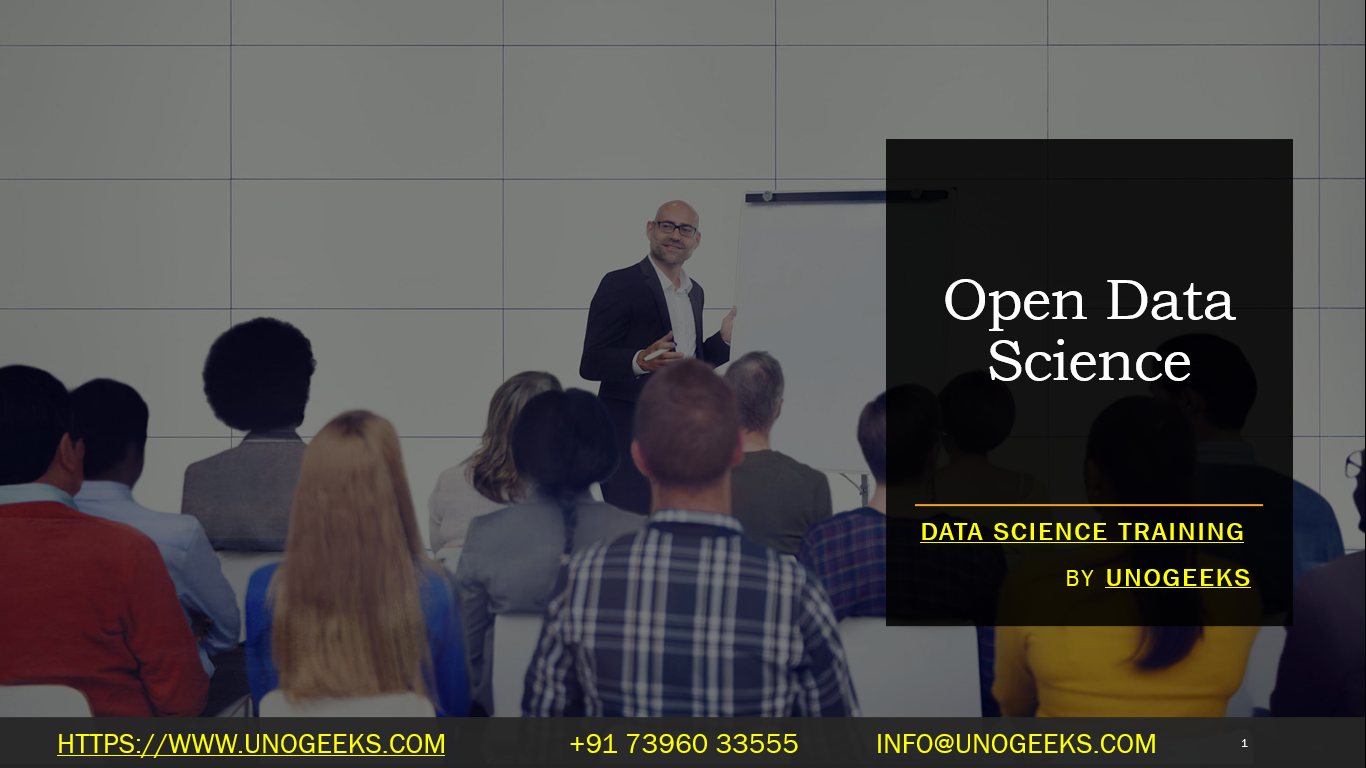Open Data Science
Open Data Science (ODS) refers to a collaborative and open-source approach to data science that encourages the sharing of knowledge, resources, and code within the data science community. It aims to make data science more accessible, transparent, and inclusive by promoting open access to tools, data, and educational resources. Here are key aspects and principles associated with Open Data Science:
Open Source Tools: ODS relies heavily on open-source data science tools and libraries. Popular examples include programming languages like Python and R, as well as libraries such as NumPy, pandas, scikit-learn, TensorFlow, and PyTorch for data manipulation, analysis, and machine learning.
Open Data: ODS initiatives advocate for open data, which means making datasets available to the public for analysis and research. Governments, organizations, and institutions often release datasets openly to encourage innovation and data-driven solutions.
Community Collaboration: ODS fosters a collaborative environment where data scientists, researchers, developers, and domain experts can collaborate on projects, share insights, and contribute to open-source projects. Online platforms and forums play a crucial role in facilitating collaboration.
Reproducibility: ODS places a strong emphasis on reproducibility. Data scientists are encouraged to share not only their findings but also the code and data used in their analyses. This allows others to replicate and build upon their work, promoting transparency and trust in the field.
Education and Training: ODS initiatives often provide free and accessible educational resources, tutorials, and courses to help individuals learn data science concepts and techniques. These resources are valuable for both beginners and experienced data scientists.
Data Ethics and Privacy: Ethical considerations are an integral part of ODS. Practitioners are encouraged to handle data responsibly, protect privacy, and adhere to ethical guidelines when working with sensitive information.
Diverse Applications: ODS is applied across a wide range of domains, including healthcare, finance, environmental science, social sciences, and more. It enables data-driven solutions to diverse real-world problems.
Data Visualization: Data visualization is an essential component of ODS. Tools like Matplotlib, Seaborn, Plotly, and D3.js are commonly used to create informative and visually appealing data visualizations.
Data Journalism: ODS principles are also embraced by data journalists who use data science techniques to investigate and report on various topics, from government transparency to social issues.
Data Challenges and Competitions: Open Data Science competitions, hosted on platforms like Kaggle, offer data scientists the opportunity to solve challenging problems, compete with peers, and showcase their skills.
Data for Social Good: ODS initiatives often focus on applying data science for social impact, addressing issues such as poverty, public health, climate change, and disaster response.
Career Development: Engaging in ODS activities, such as contributing to open-source projects or participating in data challenges, can enhance a data scientist’s portfolio and career prospects.
Data Science Training Demo Day 1 Video:
Conclusion:
Unogeeks is the No.1 IT Training Institute for Data Science Training. Anyone Disagree? Please drop in a comment
You can check out our other latest blogs on Data Science here – Data Science Blogs
You can check out our Best In Class Data Science Training Details here – Data Science Training

———————————-
For Training inquiries:
Call/Whatsapp: +91 73960 33555
Mail us at: info@unogeeks.com
Our Website ➜ https://unogeeks.com
Follow us:
Instagram: https://www.instagram.com/unogeeks
Facebook:https://www.facebook.com/UnogeeksSoftwareTrainingInstitute
Twitter: https://twitter.com/unogeeks
